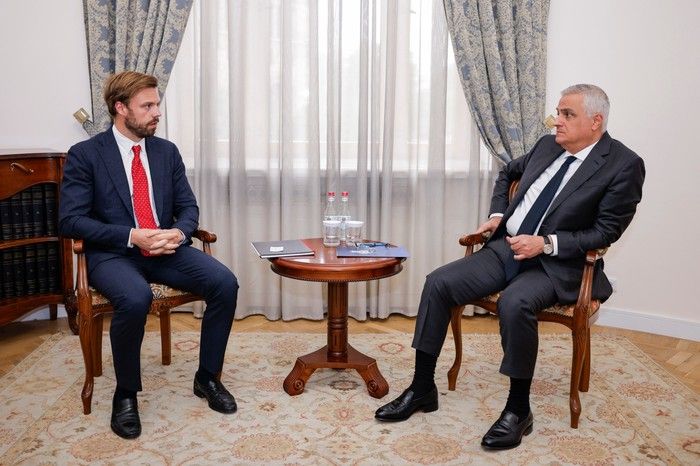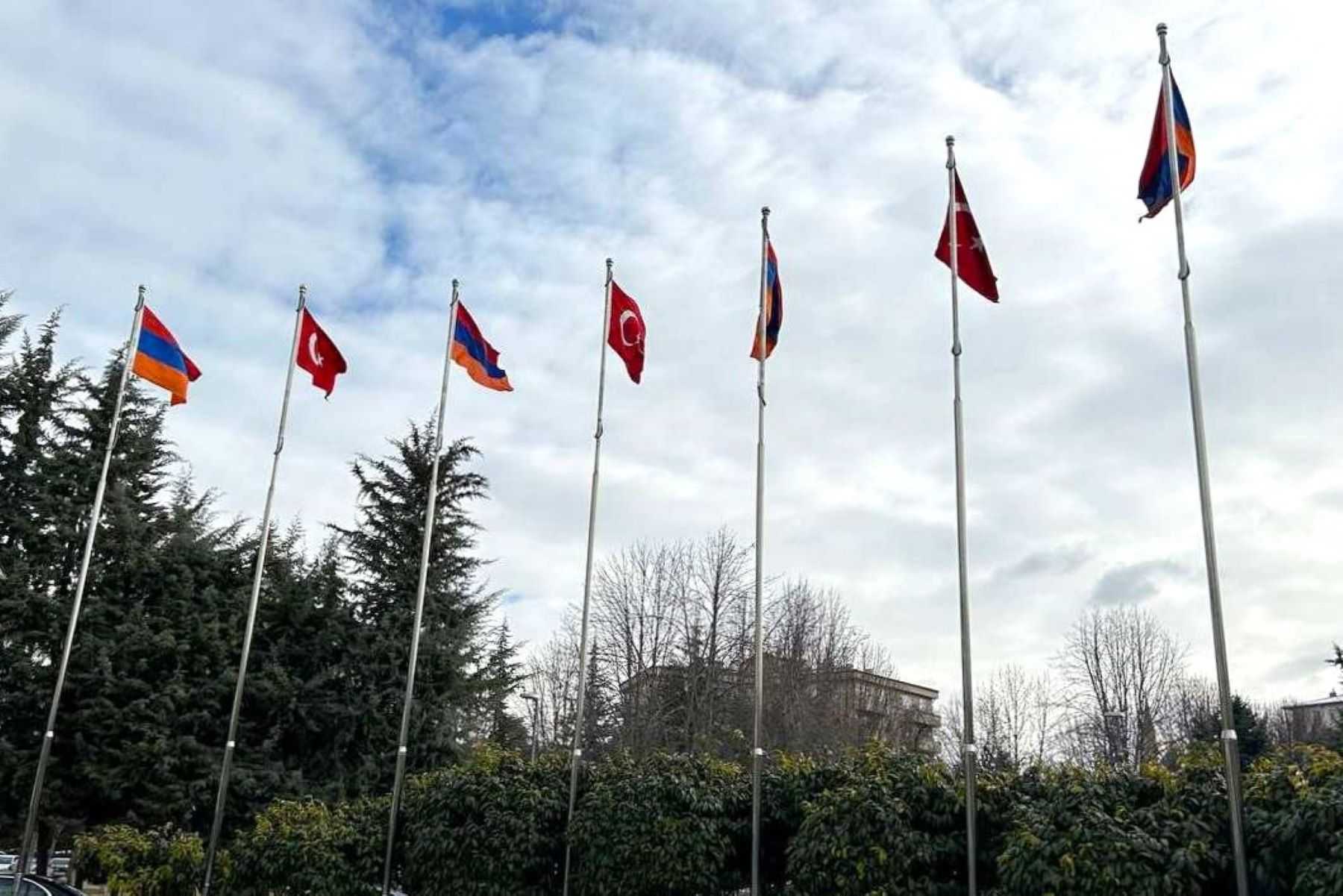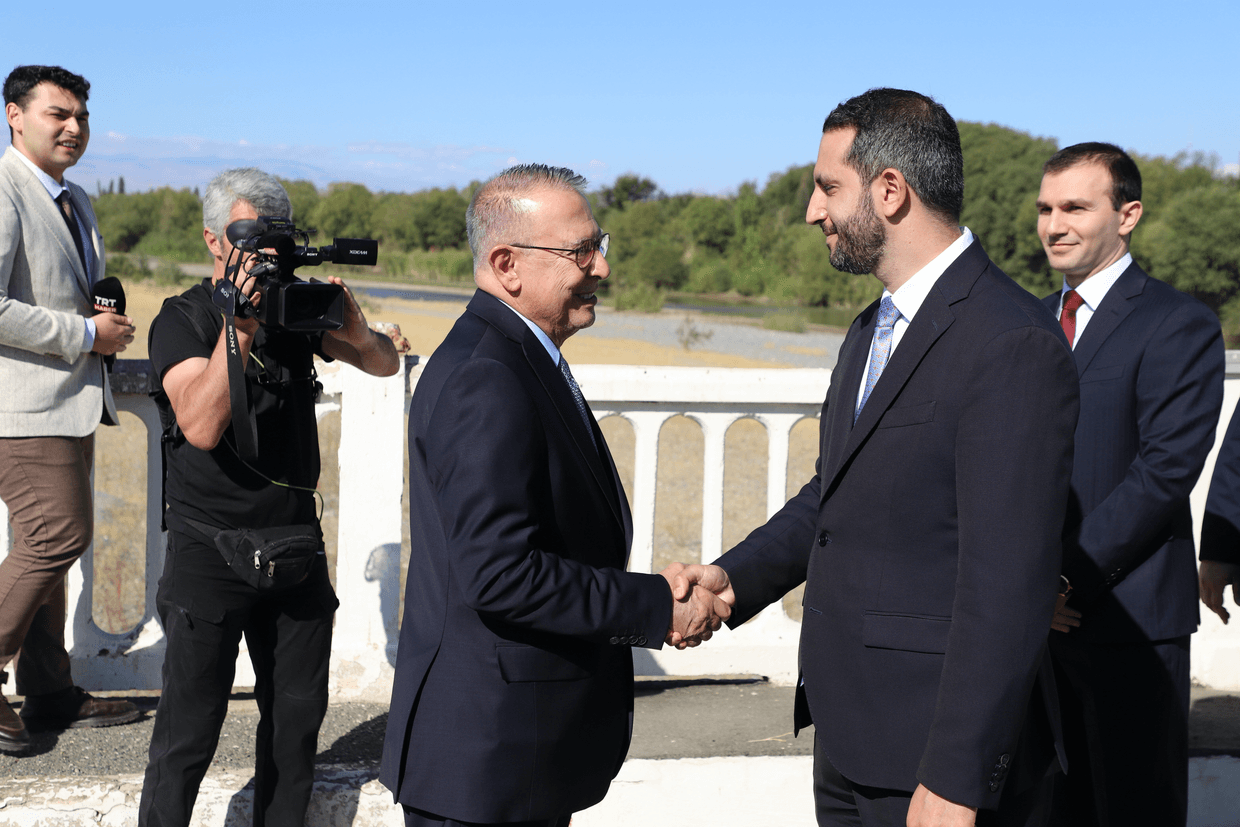
On Friday, Turkey’s Special Envoy for normalisation with Armenia, Serdar Kılıç, arrived in Armenia via the land border, which remains closed, to hold talks for the first time in Yerevan.
Kılıç’s Armenian counterpart, Ruben Rubinyan, welcomed him at the border, with the two shaking hands before walking onto Armenian territory.
The Armenian Foreign Ministry reported that the envoys ‘agreed to expedite’ the process of opening the border crossings, the agreement on which they reached in July 2022.
Then Armenia and Turkey have reached an agreement to allow third-country citizens and diplomats to cross the border between the two countries, the Armenia–Turkey land border remains closed, with Turkey conditioning progress on its opening with the Armenia–Azerbaijan peace process.
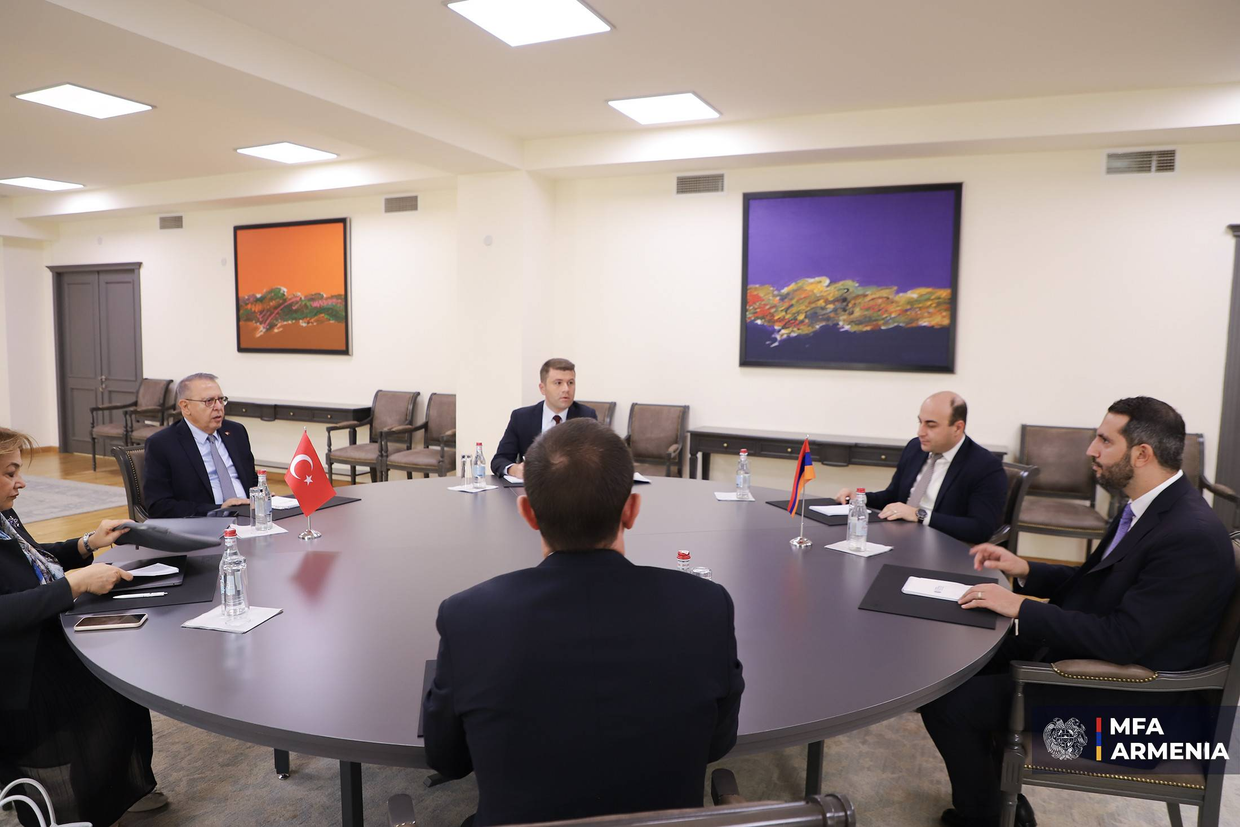
‘They also decided that efforts should be made to strengthen cooperation in the field of culture and academia, particularly by creating scholarship opportunities for higher education students and the joint renovation of the historical Ani/Silk Road bridge’, read the Armenian readout.
They also agreed ‘to carry out the necessary work for other interested companies to start flights to various destinations starting in the summer of 2026’, which will work towards increasing the number of flights between the two countries.
Following the meeting, Kılıç expressed gratitude for Rubinyan’s ‘warm welcome’, adding that he was ‘glad’ to meet him again.
At the same time, members of the opposition Armenian Revolutionary Federation held a small protest near the government building. However, according to RFE/RL, Kılıç and Rubinyan held their talks at the Armenian Foreign Ministry. The aim of the protesters was ‘to express to the negotiators on the Armenian and Turkish sides our disagreement with the fulfilment of Turkish preconditions’.

Armenian and Turkish envoys have been meeting since January 2022, with most discussions taking place in third-party capitals, such as Moscow and Vienna. Previously, in July 2024, Rubinyan and Kılıç held their fifth meeting on the Margara–Alican crossing on the border of the two countries. In April, they met within the framework of the Antalya Diplomacy Forum.
In 1993 Turkey unilaterally closed its border with Armenia during the First Nagorno-Karabakh War.
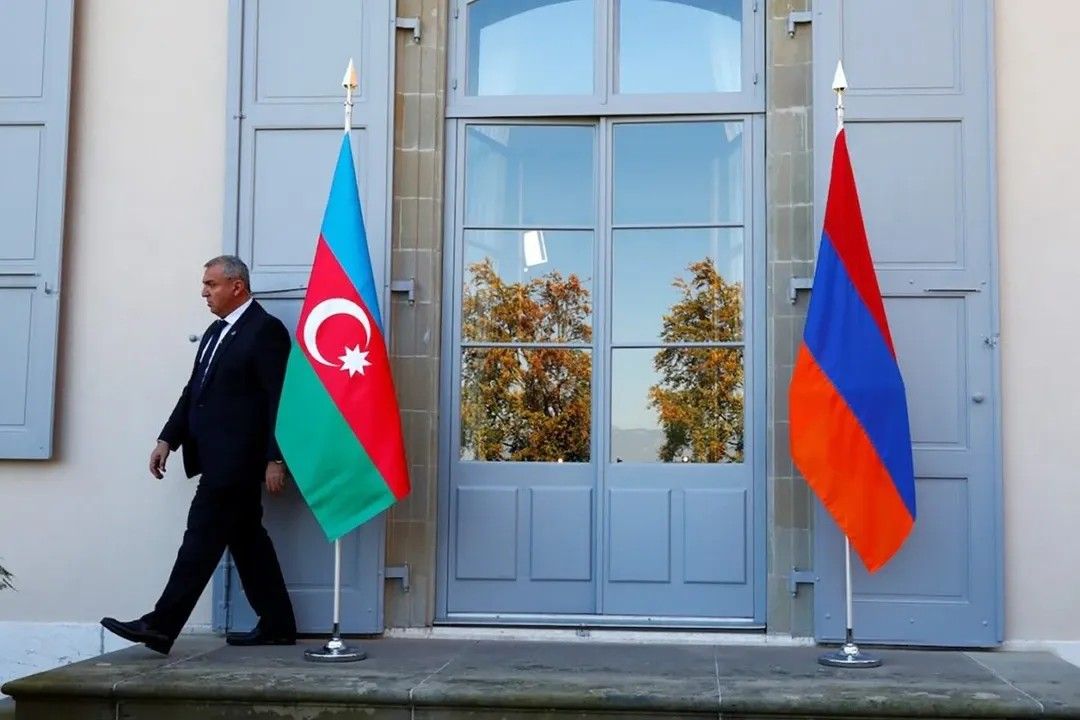
Armenian and Turkish statements ahead of the meeting
Armenian authorities first reported a meeting between special representatives for the Armenia–Turkey normalisation process in Yerevan on 7 September, without giving specifics of the date and venue.
Earlier this week, Rubinyan stated at parliament that his meeting with Kılıç would focus on the entire normalisation agenda. He added that he saw no reason why Turkey should hesitate to open the border and establish diplomatic relations with Armenia.
‘At least there is no issue of hesitation from the Armenian side. We are ready to have open borders and diplomatic relations even tomorrow’, Rubinyan said.
He highlighted that Armenia continues the normalisation process with Turkey ‘without preconditions’.
Unlike Armenia, Turkey conditioned the process on the developments between Armenia and Azerbaijan. Ahead of the meeting, Kılıç pointed out the reasons which obstruct them from opening the border.
Referring to Rubinyan’s remarks expressing Armenia’s readiness to open the border, Kılıç claimed that ‘some technical work needs to be carried out before certain projects can be implemented; otherwise, we have no issue regarding intent’.
Kılıç’s statement came on Thursday, during a press briefing in Turkey’s Igdir province bordering Armenia, where he went to meet with the province’s governor, Ercan Turan, ahead of his meeting with Rubinyan.
During the same briefing, Kılıç stated the ‘Zangezur route’, in an apparent reference to the Tumpe Route, was ‘particularly significant’ and ‘important not only for relations between Turkey and Armenia but also for opening up to all of Central Asia and the Turkic republics’.
The Washington summit on 8 August between Armenia, Azerbaijan, and the US saw the initialling of the peace treaty between Armenia and Azerbaijan, as well as an agreement to establish a route between Azerbaijan and its exclave of Nakhchivan through Armenia called Trump Route for International Peace and Prosperity (TRIPP), or the Trump Route.
